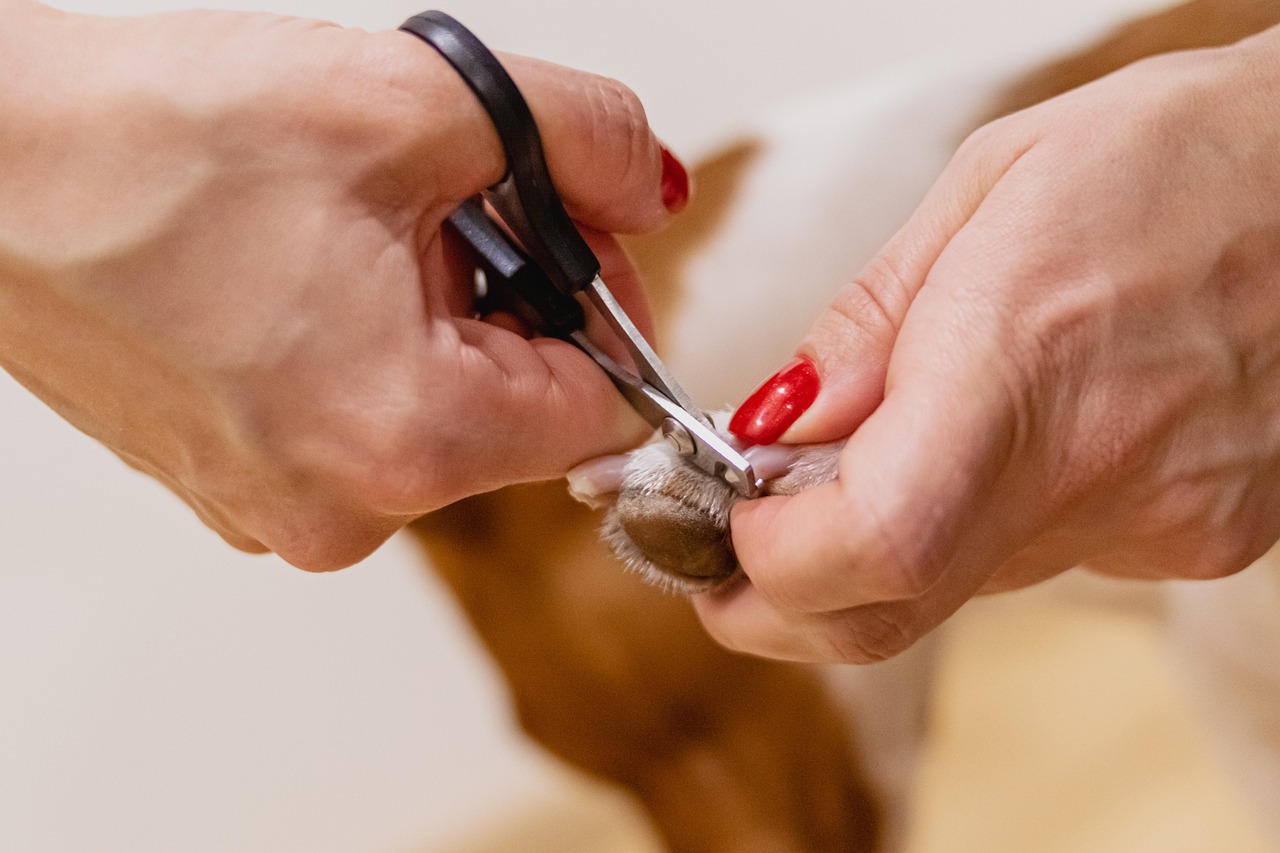The Importance of Grooming for Overall Happiness
In today's fast-paced world, where appearances often speak louder than words, grooming has emerged as a vital component of our daily lives. But grooming is not just about looking good; it’s about feeling good too! Imagine waking up, taking a moment to pamper yourself, and stepping out into the world with a newfound sense of confidence. That’s the magic of grooming! It’s like putting on an invisible crown that boosts your self-esteem and brightens your mood.
When we engage in grooming routines—whether it’s a simple skincare regimen, a fresh haircut, or choosing an outfit that makes us feel fabulous—we are investing in our mental well-being. These routines can trigger a positive feedback loop; as we look better, we feel better, and this enhances our overall happiness. It’s amazing how something as simple as grooming can transform our outlook on life. So, let’s dive deeper into why grooming is essential for our overall happiness and quality of life.
Grooming can significantly boost self-esteem and confidence. Engaging in grooming routines often leads to improved mood and mental clarity, creating a positive feedback loop that enhances overall happiness. When you take the time to groom yourself, it’s like giving yourself a little pat on the back. It says, “Hey, you matter!” This simple act can trigger a flood of endorphins, the feel-good hormones that elevate your mood. Think about it: when you look in the mirror and see someone who looks put-together, doesn’t that make you feel like you can conquer the world?
Moreover, grooming can serve as a form of self-care. It’s a moment carved out of your busy day to focus solely on you. Whether it’s indulging in a luxurious bubble bath, trying out a new hairstyle, or simply putting on your favorite fragrance, these moments can be incredibly rewarding. They not only enhance your appearance but also contribute to your mental health, making you feel more relaxed and centered.
Well-groomed individuals often experience more positive interactions. Have you ever noticed how people tend to gravitate towards someone who looks put-together? It’s not just about vanity; it’s about the perceptions we create through our appearance. When you take care of yourself, others are more likely to perceive you as confident, approachable, and even successful. This can lead to better social experiences and increased happiness in personal and professional settings.
First impressions are crucial in social settings, and grooming plays a key role. Did you know that it only takes about seven seconds for someone to form an opinion about you? That’s right! In those fleeting moments, your grooming can make a lasting impact. A well-maintained appearance can influence the way others perceive and interact with you, opening doors to new friendships, networking opportunities, and even romantic interests.
In professional settings, grooming can affect career advancement and networking opportunities. A polished appearance often translates to more respect and credibility in the workplace. Think of grooming as your professional armor—when you look sharp, you feel sharp. This can lead to increased confidence during presentations, interviews, and meetings, ultimately paving the way for success in your career.
Personal relationships thrive on attraction and connection. Here, we explore how grooming can enhance romantic relationships and friendships, fostering deeper connections and satisfaction. Taking the time to look your best not only shows that you care about yourself, but it also signals to others that you value the relationship. Whether it’s a date night or a casual outing with friends, a little grooming can go a long way in making those moments more enjoyable.
Grooming is a vital aspect of self-care. Regular grooming routines contribute to overall well-being, promoting relaxation and reducing stress in daily life. Think of it as your personal ritual, a time to unwind and recharge. Whether it’s a soothing facial mask or a fresh manicure, these moments of self-care can help you feel more balanced and ready to tackle whatever life throws your way.
Grooming is not just about aesthetics; it also relates to physical health. Proper grooming practices can prevent health issues and promote a healthier lifestyle. For instance, maintaining good hygiene can help ward off infections and illnesses, while taking care of your skin can prevent more serious conditions down the line. It’s a win-win situation!
Skincare routines can have profound effects on mental health. When you take care of your skin, you’re not just improving your appearance; you’re also boosting your self-image and contributing to a happier mindset. It’s like giving your skin a hug! The act of cleansing, moisturizing, and protecting your skin can be incredibly therapeutic, helping you feel more connected to your body and your well-being.
Maintaining personal hygiene is essential for overall well-being. This is not just about looking good; it’s about feeling good from the inside out. Good hygiene practices can prevent illness and enhance your quality of life, leading to greater happiness. Imagine how refreshing it feels to take a shower after a long day or how confident you feel when your breath is fresh. These small acts of grooming can significantly impact your daily happiness.
- How often should I groom myself? It depends on personal preference, but establishing a regular routine can enhance your self-esteem and well-being.
- Does grooming really affect my mental health? Absolutely! Grooming can boost your mood and improve your self-image, leading to better mental health.
- What are some quick grooming tips for busy people? Simple things like a quick skincare routine, keeping your hair tidy, and wearing clean clothes can make a big difference.

The Psychological Benefits of Grooming
Grooming is more than just a routine; it's a powerful tool for enhancing our mental well-being. When we engage in grooming practices, we are not only taking care of our physical appearance but also nurturing our self-esteem and confidence. Think about it: when you look good, you feel good! It's as if there's an invisible connection between our outward appearance and our inner happiness. This phenomenon creates a positive feedback loop where improved mood leads to better grooming habits, which in turn boosts our mental clarity and overall happiness.
Many people underestimate the impact of a simple grooming routine. For instance, consider how a fresh haircut or a well-maintained beard can transform your day. It’s like putting on a superhero cape—suddenly, you feel invincible! Not only does grooming make you feel more attractive, but it also sends a message to your brain that you care about yourself. This self-care ritual can lead to a significant boost in mood, making you feel more ready to tackle the challenges of the day.
Moreover, regular grooming can also serve as a form of mindfulness practice. When you take the time to care for yourself, you create a moment of peace in your busy life. Whether it’s the soothing sensation of a warm shower or the calming effect of applying your favorite lotion, these moments of self-care can be incredibly therapeutic. They allow you to focus on the present, reducing stress and anxiety.
To further highlight the psychological benefits of grooming, let’s look at some key aspects:
- Enhanced Self-Perception: When you groom yourself, you’re likely to see a more polished version of yourself in the mirror, which can improve your self-image.
- Increased Confidence: Feeling good about your appearance can lead to greater confidence in social situations, enabling you to engage more freely with others.
- Positive Mood Boost: The act of grooming can trigger the release of endorphins, those feel-good hormones that elevate your mood.
In essence, grooming is a vital component of our mental health toolkit. It’s not just about looking good; it’s about feeling good and fostering a positive self-image. So, the next time you’re tempted to skip your grooming routine, remember the psychological benefits it brings. Embrace the ritual, and watch as your confidence and happiness soar to new heights!

Grooming and Social Interactions
Have you ever walked into a room and felt the energy shift? It’s like magic! The truth is, grooming plays a pivotal role in these social dynamics. When we take the time to present ourselves well, we not only feel better but also project confidence and positivity that others can’t help but notice. It’s fascinating how something as simple as a fresh haircut or a polished outfit can transform our interactions with those around us.
Studies show that well-groomed individuals often enjoy more favorable social experiences. This is not just about looking good; it’s about the psychological impact grooming has on our self-perception. When we feel good about how we look, we tend to engage more openly with others. Think of it like this: when you’re dressed to impress, you walk a little taller, smile a little brighter, and your body language screams confidence. This creates a positive feedback loop where your confidence invites others to respond positively to you.
Moreover, grooming affects how we are perceived in social settings. People often make split-second judgments based on appearance, and grooming can significantly influence these first impressions. For instance, a well-groomed person is often seen as more trustworthy and competent. This is particularly important in professional environments, where networking and building relationships are key to success. So, whether it’s a casual meetup or a formal business event, investing time in grooming can enhance your social interactions tremendously.
Let’s dive deeper into the specifics. Here are a few ways grooming enhances social interactions:
- Confidence Boost: Looking good can lead to feeling good, which in turn makes you more approachable.
- Positive Perception: People are more likely to engage with someone who appears well-groomed.
- Improved Communication: When you feel confident, you communicate more effectively, leading to better conversations.
In personal relationships, grooming can enhance attraction and connection. Imagine going on a date; the effort you put into your appearance can signal to your partner that you value the occasion. This attention to detail can foster deeper connections and satisfaction in your relationships. It’s like adding a sprinkle of magic to the mix—suddenly, everything feels a bit more special.
In conclusion, grooming is not just a routine; it’s a powerful tool for enhancing our social interactions. By taking care of ourselves, we not only boost our self-esteem but also enrich our relationships with others. So, next time you’re getting ready, remember that you’re not just preparing for the day—you’re setting the stage for meaningful connections and memorable experiences.
Q: Does grooming really impact my social life?
A: Absolutely! Grooming can boost your confidence and influence how others perceive you, leading to more positive social interactions.
Q: How often should I groom myself?
A: It varies from person to person, but regular grooming routines—like haircuts, skincare, and personal hygiene—can greatly enhance your overall appearance and confidence.
Q: Can grooming affect my professional relationships?
A: Yes! A well-groomed appearance can create a positive impression in professional settings, potentially leading to better networking opportunities and career advancements.
The Role of First Impressions
First impressions are like the opening act of a concert; they set the tone for everything that follows. When you meet someone for the first time, your appearance, demeanor, and grooming habits play a pivotal role in how you are perceived. Think about it: have you ever walked into a room and instantly felt the energy shift based on how someone looked? That’s the power of a well-groomed individual. When you take the time to present yourself neatly, it not only affects how others see you but also how you see yourself.
Research shows that people form opinions about others within the first few seconds of meeting. In fact, studies suggest that it takes less than seven seconds for someone to make a judgment about you. This means that your grooming habits can significantly influence the initial perception others have of you. A well-groomed appearance can convey confidence, professionalism, and even trustworthiness. Think of it as your personal brand; if you want people to take you seriously, your grooming should reflect that.
Moreover, grooming is a silent communicator. It speaks volumes about your personality and lifestyle. For instance, someone who invests time in their appearance may be perceived as organized and meticulous. In contrast, a disheveled look might suggest carelessness or a lack of self-respect. This isn’t to say you need to be dressed to the nines at all times, but maintaining a basic level of grooming can enhance your social interactions significantly.
To illustrate this point, let’s consider a few scenarios:
- Job Interviews: A polished appearance can make you stand out among candidates. Employers often equate grooming with professionalism.
- Social Gatherings: Being well-groomed can make you more approachable, leading to better conversations and connections.
- Networking Events: First impressions can open doors to opportunities. A neat look can make you memorable in a sea of faces.
In essence, grooming is not just about looking good; it’s about feeling good too. When you invest in your appearance, it boosts your self-esteem, which in turn affects how you interact with the world. You walk taller, smile more, and engage better. It’s a cycle of positivity that begins with the simple act of grooming.
So, the next time you prepare for an outing or an important meeting, remember that your grooming habits are more than just superficial. They are the first chapter of your story, and you want it to be a captivating one. After all, you never get a second chance to make a first impression!
1. How important is grooming for first impressions?
Grooming is crucial for first impressions as it influences how others perceive your confidence and professionalism. A well-groomed appearance can lead to more positive interactions.
2. Can grooming affect my self-esteem?
Yes! Regular grooming can boost your self-esteem by making you feel more confident and put-together, which positively impacts your interactions with others.
3. What are some quick grooming tips for better first impressions?
- Maintain a clean hairstyle.
- Dress appropriately for the occasion.
- Pay attention to personal hygiene.
- Choose clothing that fits well and is in good condition.
4. Does grooming matter in professional settings?
Absolutely! In professional environments, grooming can affect career advancement and networking opportunities. It’s often seen as a reflection of your work ethic and dedication.
Grooming in Professional Environments
When it comes to navigating the professional world, grooming isn't just a matter of vanity; it's a crucial element that can shape your career trajectory. Imagine walking into a meeting feeling confident because you took the time to present yourself well. This confidence can translate into how you communicate, collaborate, and even negotiate. Grooming helps to create a polished image that speaks volumes about your professionalism and attention to detail.
In many industries, first impressions are made in mere seconds. Whether you’re meeting a client for the first time or presenting to your colleagues, your appearance can influence how others perceive your competence and reliability. A well-groomed individual is often seen as more credible and trustworthy. This perception can lead to better networking opportunities and career advancement. In fact, studies have shown that individuals who maintain a professional appearance are more likely to be considered for promotions or leadership roles.
So, what does grooming in a professional environment entail? It goes beyond just wearing a suit or dressing appropriately. Here are some key aspects to consider:
- Personal Hygiene: Regular showers, deodorant use, and oral hygiene are non-negotiables.
- Professional Attire: Wearing clothes that are clean, well-fitted, and appropriate for your workplace can make a significant difference.
- Groomed Hair: A neat hairstyle can enhance your overall look and contribute to a polished appearance.
- Minimal Accessories: Keeping accessories subtle and professional can help maintain focus on your skills and capabilities.
Moreover, grooming extends to your digital presence as well. In today’s world, your online image can be just as important as your physical appearance. Ensuring that your social media profiles reflect professionalism can enhance your reputation and open doors to new opportunities. Think of your LinkedIn profile as your digital business card—make sure it’s well-maintained and represents you in the best light.
Ultimately, grooming in professional environments is about more than just looking good; it's about fostering a sense of self-respect and respect for others. When you take the time to present yourself well, it sends a message that you value your role and the people you work with. This can lead to a more positive work atmosphere, where collaboration and creativity can thrive.
Q1: How often should I groom for a professional setting?
A1: Regular grooming is essential; aim for daily personal hygiene practices and consider grooming your hair and nails weekly or bi-weekly, depending on your style.
Q2: Does grooming affect my chances of promotion?
A2: Yes, a well-groomed appearance can enhance your professional image and increase your chances of being noticed for promotions and leadership roles.
Q3: Is it necessary to follow grooming trends in the workplace?
A3: While it's important to stay updated on professional standards, choose grooming styles that align with your personal brand and the culture of your workplace.
Grooming for Personal Relationships
When it comes to personal relationships, whether they are romantic or platonic, grooming plays a crucial role in fostering attraction and connection. Think of grooming as the cherry on top of a sundae; it enhances the overall experience. When you take the time to present yourself well, it sends a message to others that you value not only yourself but also the people you interact with. This can lead to deeper connections and more fulfilling relationships.
Imagine walking into a room where everyone is well-groomed; the atmosphere is instantly more inviting. Well-groomed individuals often exude confidence, which can be contagious. This confidence can spark conversations and create opportunities for bonding. Furthermore, when you feel good about your appearance, it reflects in your demeanor and attitude, making you more approachable and engaging.
In romantic relationships, grooming can be particularly significant. It’s not just about looking good for your partner; it’s about showing that you care. When you put effort into your appearance, it can reignite the spark in a long-term relationship. A simple act like dressing up for a date night or maintaining a fresh haircut can make a world of difference. It’s a way of saying, “I still want to impress you.”
Moreover, grooming can enhance your social circle. Friends are often drawn to those who take care of themselves. It creates a sense of camaraderie and mutual respect. When you and your friends prioritize grooming, it fosters a shared value system that can strengthen your bond. Plus, it’s easier to enjoy social outings when everyone feels confident and comfortable in their own skin.
Additionally, let’s not forget the role of grooming in the early stages of relationships. First dates can be nerve-wracking, and your grooming habits can impact the impression you make. A well-groomed appearance can lead to positive perceptions and set the tone for the rest of the interaction. After all, first impressions matter, and grooming is a key player in that game.
In conclusion, grooming is more than just a surface-level concern; it’s an essential component of healthy personal relationships. Whether it’s boosting your confidence, enhancing attraction, or creating a welcoming environment, the benefits of grooming are undeniable. So, take a moment to invest in yourself, because when you feel good, it radiates into your relationships.
- How often should I groom myself? Regular grooming depends on personal preferences, but a good rule of thumb is to maintain a routine that fits your lifestyle, such as daily skincare and weekly haircuts.
- Can grooming improve my relationships? Absolutely! Taking care of your appearance can boost your confidence and make you more approachable, enhancing your social interactions and personal relationships.
- Is grooming only about looks? While looks are a part of grooming, it also encompasses self-care and hygiene, which are vital for overall well-being.
The Connection Between Grooming and Self-Care
Grooming is often viewed as a superficial task, something we do to look good on the outside. However, it goes far deeper than that. In fact, grooming is a fundamental aspect of self-care that can profoundly impact our mental and emotional well-being. Imagine grooming as a form of self-expression—it's not just about the products we use or the styles we choose, but rather the way these actions make us feel. When we engage in grooming routines, we are actively participating in a ritual that nurtures our self-esteem and reinforces our sense of identity.
Regular grooming can be an effective way to carve out time for ourselves in our busy lives. Just think about it: when was the last time you took a moment to pamper yourself? Whether it’s a relaxing bath, a fresh haircut, or simply applying your favorite skincare products, these small acts can create a significant impact on our mood. They serve as a reminder that we deserve care and attention, just like anyone else. This is where the connection between grooming and self-care becomes evident; it’s about feeling good in our own skin.
Furthermore, grooming can be a powerful tool for stress relief. Engaging in a grooming routine can act as a form of mindfulness, allowing us to focus on the present moment. For example, the simple act of washing our face or styling our hair can help ground us, providing a break from the chaos of daily life. This is particularly important in today’s fast-paced world where stress can feel overwhelming. By dedicating time to grooming, we create a sanctuary for ourselves, a moment to breathe and reconnect with who we are.
Additionally, grooming routines can boost our confidence levels. When we look good, we often feel good. This can lead to a positive cycle where improved self-image enhances our interactions with others. It’s like putting on armor before stepping into the battlefield of daily life. When we feel confident, we are more likely to engage in social activities, pursue new opportunities, and take risks that we might otherwise shy away from. This newfound confidence can be transformative, leading to greater happiness and fulfillment.
Incorporating grooming into our self-care routine doesn’t have to be complicated or time-consuming. It can be as simple as setting aside a few minutes each day to focus on ourselves. Here are some easy ways to integrate grooming into your self-care regimen:
- Establish a Routine: Create a daily or weekly grooming schedule that fits your lifestyle.
- Use Quality Products: Invest in grooming products that make you feel good and cater to your needs.
- Set the Mood: Make grooming a pleasurable experience by playing your favorite music or lighting a scented candle.
Ultimately, grooming is not just about appearance; it’s about cultivating a sense of well-being and self-love. By prioritizing grooming as a form of self-care, we can enhance our overall quality of life, leading to greater happiness and satisfaction. So, why not take a moment today to indulge in a little grooming? You deserve it!
Q: How often should I groom myself for optimal self-care?
A: The frequency of grooming can vary based on personal preference and lifestyle. However, establishing a regular routine—be it daily or weekly—can significantly enhance your self-care efforts.
Q: Can grooming really affect my mood?
A: Absolutely! Engaging in grooming routines can promote feelings of relaxation and boost your self-esteem, leading to an overall improvement in mood.
Q: What are some simple grooming practices I can start with?
A: Simple practices include maintaining good hygiene, caring for your skin, and ensuring your hair is clean and styled. Even small changes can make a big difference!
Q: Is grooming only about aesthetics?
A: Not at all! While grooming does enhance appearance, it is equally about self-care, mental well-being, and confidence.

Physical Health and Grooming
When we think of grooming, our minds often drift to aesthetics—how we look on the outside. However, the truth is that grooming is much more than skin deep; it plays a pivotal role in our physical health and overall well-being. Just like a car needs regular maintenance to run smoothly, our bodies require care and attention to function optimally. Grooming habits, such as regular haircuts, skincare routines, and even dental hygiene, can significantly influence our health and happiness.
For instance, consider the importance of oral hygiene. Brushing and flossing your teeth not only keeps your smile bright but also prevents serious health issues like gum disease and heart problems. Studies have shown that poor oral health can lead to systemic issues, affecting everything from your heart to your diabetes management. By maintaining good dental hygiene, you’re not just enhancing your appearance; you’re also safeguarding your health.
Another crucial aspect of grooming that often gets overlooked is skincare. Our skin is the largest organ of our body, and it deserves proper care. A consistent skincare routine can help prevent issues like acne, eczema, and premature aging. More importantly, taking care of your skin can boost your confidence and help you feel more comfortable in your own skin. Imagine waking up every day with a glowing complexion—how much more positive would your outlook be?
Moreover, grooming can also serve as a form of stress relief. Engaging in self-care activities, such as a relaxing bath, a soothing face mask, or a fresh haircut, can significantly reduce stress levels. It’s like hitting the reset button on your day. When you take time to care for yourself, you’re sending your body a message that it’s deserving of love and attention, which can lead to improved mental health.
Let's not forget about the role of grooming in preventing health issues. For example, regular nail trimming and foot care can prevent painful conditions like ingrown toenails or athlete's foot. Similarly, maintaining a clean and tidy appearance can help reduce the risk of skin infections. By incorporating simple grooming habits into your routine, you’re not just enhancing your looks; you’re actively promoting a healthier lifestyle.
In summary, grooming is an essential part of maintaining not just our appearance but also our physical health. It’s about creating a harmonious balance between looking good and feeling good. The next time you pick up that hairbrush or skincare product, remember that you’re doing more than just grooming; you’re investing in your health and happiness.
- How often should I groom myself for optimal health?
It varies from person to person, but establishing a regular routine—like daily skincare and weekly haircuts—can significantly benefit your overall health. - Can grooming really affect my mental health?
Absolutely! Regular grooming can boost your self-esteem and confidence, leading to a more positive mindset. - What are some essential grooming habits I should adopt?
Focus on dental hygiene, skincare, hair care, and maintaining clean nails. These practices contribute to both your appearance and health.
Skincare and Mental Health
When we think about skincare, our minds often jump to the latest creams, serums, and beauty trends. However, what many people overlook is the profound connection between skincare and mental health. Taking the time to care for your skin isn't just a beauty ritual; it's a powerful act of self-love and self-care that can significantly impact your mental well-being.
Imagine starting your day with a refreshing splash of water on your face, followed by the soothing application of moisturizer. This simple routine can set a positive tone for your day, making you feel more energized and ready to tackle whatever comes your way. Engaging in a consistent skincare routine can lead to a boost in self-image and confidence, which are crucial components of mental health. When we look good, we often feel good, and this can create a ripple effect throughout our day-to-day interactions.
Moreover, the act of applying skincare products can be a moment of mindfulness. In our fast-paced world, taking a few minutes to focus solely on yourself can be incredibly grounding. This practice not only allows you to check in with your thoughts and feelings but also serves as a reminder to prioritize your own needs. Many find that during their skincare routine, they can reflect on their day, set intentions, or simply enjoy the sensation of the products on their skin. Mindfulness is a key element in reducing anxiety and stress, and skincare can be an accessible way to incorporate this practice into your daily life.
Additionally, let’s not forget the psychological impact of clear skin. Many individuals struggle with skin issues, such as acne or eczema, which can lead to feelings of self-consciousness and social anxiety. By investing time in a skincare routine, you’re not just treating your skin; you’re also tackling the emotional challenges that come with skin imperfections. When you see improvements in your skin, it can lead to a significant boost in your self-esteem and overall happiness.
To illustrate the benefits of skincare on mental health, consider the following table:
| Skincare Benefits | Mental Health Impact |
|---|---|
| Improved Skin Appearance | Boosts self-esteem and confidence |
| Mindfulness Practice | Reduces anxiety and promotes relaxation |
| Routine and Structure | Creates a sense of control and stability |
| Self-Care Ritual | Enhances feelings of self-worth and happiness |
In summary, skincare is not merely a superficial endeavor. It’s a holistic practice that intertwines with our mental health. By nurturing our skin, we are also nurturing our minds. So, the next time you reach for your favorite moisturizer, remember that you’re doing more than just pampering yourself; you’re taking a significant step towards a happier, healthier you.
- How often should I follow a skincare routine? Ideally, a basic skincare routine should be followed twice a day—once in the morning and once at night.
- Can skincare really improve my mood? Yes! Engaging in a skincare routine can boost your self-esteem and provide a moment of mindfulness, both of which contribute to improved mood.
- What if I have sensitive skin? It's essential to choose products specifically designed for sensitive skin to avoid irritation. Always patch test new products.
- Are there specific ingredients that help with mental health? While no ingredient can directly affect mental health, ingredients that promote skin health can enhance self-image, which indirectly boosts mental well-being.
Hygiene and Well-Being
Maintaining personal hygiene is not just a matter of being clean; it plays a crucial role in our overall well-being and happiness. Imagine waking up in the morning, feeling fresh and invigorated after a good shower, and knowing that you’ve taken the time to care for yourself. This simple act can set the tone for your entire day! When we prioritize hygiene, we not only keep ourselves physically clean but also contribute to our mental clarity and emotional health.
Good hygiene practices can significantly reduce the risk of illness and infection. Think about it: when you wash your hands regularly, you’re not just following a routine; you’re actively protecting yourself from germs and viruses that could derail your day. This proactive approach to personal care fosters a sense of control and empowerment, which is vital for our mental state. By taking these small steps, we can create a ripple effect that enhances our quality of life.
Moreover, hygiene has a profound impact on our social interactions. When you feel fresh and clean, you’re more likely to engage confidently with others. Whether it’s a casual meet-up with friends or a formal business meeting, your level of hygiene can influence how others perceive you. A well-groomed appearance often leads to more positive social experiences, which in turn boosts your self-esteem and happiness. In fact, studies have shown that individuals who maintain good hygiene are often viewed as more approachable and trustworthy.
Let’s not forget the mental health benefits that come with good hygiene practices. Taking the time to engage in self-care routines can be incredibly therapeutic. For instance, indulging in a long, relaxing bath can serve as a mini-retreat from the stresses of daily life. It’s a moment to unwind, reflect, and rejuvenate your mind and body. This connection between hygiene and self-care is essential; it’s not just about looking good, but also about feeling good.
Here are a few key hygiene practices that can enhance your well-being:
- Regular Hand Washing: This simple act can prevent the spread of illnesses and keep you healthy.
- Daily Showers: A refreshing shower can boost your mood and energy levels.
- Oral Hygiene: Brushing and flossing not only keep your smile bright but also contribute to overall health.
- Skincare Routines: Taking care of your skin can improve self-image and promote relaxation.
In summary, good hygiene is a cornerstone of well-being. It influences not only our physical health but also our mental and emotional state. By embracing hygiene as a vital part of our daily routine, we can enhance our happiness, foster better social interactions, and ultimately lead a more fulfilling life.
1. Why is personal hygiene important for mental health?
Maintaining good personal hygiene can boost self-esteem and confidence, leading to improved mental health. Feeling clean and fresh often contributes to a more positive self-image.
2. How does hygiene affect social interactions?
Good hygiene can lead to more positive perceptions from others, making you appear more approachable and trustworthy, which enhances social interactions.
3. What are some simple hygiene practices I can adopt?
Regular hand washing, daily showers, maintaining oral hygiene, and following a skincare routine are all effective practices that promote good hygiene.
4. Can poor hygiene lead to health issues?
Yes, neglecting personal hygiene can increase the risk of infections and illnesses, affecting both physical and mental health.
Frequently Asked Questions
- What are the psychological benefits of grooming?
Grooming can significantly enhance your self-esteem and confidence. When you engage in regular grooming routines, it often leads to an improved mood and mental clarity. This creates a positive feedback loop that can boost your overall happiness, making you feel more in control and ready to take on the day.
- How does grooming affect social interactions?
Well-groomed individuals typically experience more positive social interactions. When you look your best, it can change the way others perceive you, leading to better relationships both personally and professionally. People are naturally drawn to those who take care of themselves, which can enhance your social experiences and increase your happiness.
- Why are first impressions important in grooming?
First impressions are crucial because they set the tone for how others perceive you. A well-maintained appearance can influence people's initial judgments, making them more likely to respond positively. This is especially important in social and professional settings where first impressions can lead to lasting connections.
- How does grooming impact professional environments?
In the workplace, grooming can significantly affect your career advancement and networking opportunities. A polished appearance often conveys professionalism and attention to detail, which can make you stand out to employers and colleagues. This can lead to better job prospects and more meaningful professional relationships.
- What role does grooming play in personal relationships?
Grooming enhances personal relationships by fostering attraction and connection. When you look and feel good, it can boost your confidence and help you form deeper connections with others. This is particularly important in romantic relationships, where attraction plays a key role in satisfaction and bonding.
- How is grooming connected to self-care?
Grooming is a vital aspect of self-care that promotes relaxation and reduces stress. Regular grooming routines can serve as a form of self-expression and provide a sense of accomplishment, contributing to your overall well-being and happiness.
- Can grooming practices impact physical health?
Absolutely! Grooming isn't just about looking good; it also relates to maintaining physical health. Proper grooming practices can prevent health issues, such as skin infections or dental problems, and promote a healthier lifestyle, leading to greater overall happiness.
- How does skincare affect mental health?
Skincare routines can have profound effects on your mental health. Taking care of your skin not only improves your self-image but also contributes to a happier mindset. When you invest time in your appearance, it can boost your confidence and overall mental well-being.
- Why is personal hygiene important for well-being?
Maintaining personal hygiene is essential for overall well-being. Good hygiene practices help prevent illness and promote a better quality of life. When you feel clean and fresh, it can lead to increased happiness and a more positive outlook on life.



















